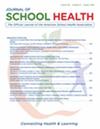Understanding Free or Reduced-Price School Meal Stigma: A Qualitative Analysis of Parent Perspectives
Abstract
Background
Receiving free or reduced-price meals (FRPM) at school benefits resource-constrained families financially and nutritionally. However, many families in the United States do not apply for FRPM, and many eligible students do not eat school meals, possibly due to stigma.
Methods
This study is a secondary qualitative analysis derived from a mixed-methods study. Interviews were conducted with 66 parents in California and Maine during the 2021–2022 school year when school meals were free for all students nationwide through a universal free school meals (UFSM) policy. Approximately half (56%) of parents had children who previously qualified for FRPM based on household income and completed a school meal application or were directly certified for free school meals in prior school years. Interviews examined parents' self-reported FRPM application stigma, perceived child school meal stigma, and opinions on UFSM. Thematic analysis was used to systematically code and analyze all qualitative data.
Results
Major themes included parent stigma associated with school meal applications, parents' perception of child stigma when participating in school meals, and UFSM's ability to reduce stigma for parents and children.
Implications for School Health Policy, Practice, and Equity
Statewide and federal UFSM policies may reduce stigma for both parents and children.
Conclusions
While not all parents reported feeling stigmatized when completing FRPM applications, most parents perceived that children experience school meal stigma. Parents believed that UFSM policies reduced stigma for families and children.

 求助内容:
求助内容: 应助结果提醒方式:
应助结果提醒方式:


